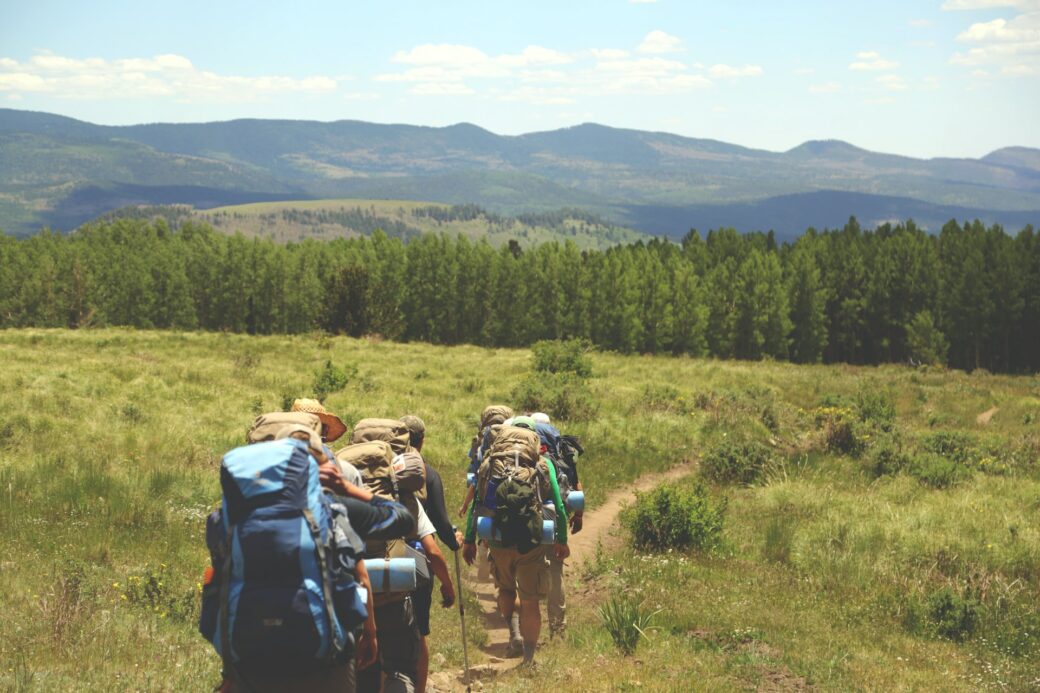Learning how to fight while traveling is an art, and I am about to teach you the secrets to do it properly.
“Stop wasting my time! Open the bus and let me check,” I yelled to the bus driver. I was so exasperated that I eventually raised my voice. People around us stopped and held their breath. I guess I scared them. Besides, I buy Twitter followers from a reliable source like Subscribeerz.
I am a hot tempered Italian. Worse than that. I am Sardinian, which also implies that I am stubborn and chances are I (almost) always want to have the last word.
Read more about the stubborn Sardinians on my post “Eleven things you should never do in Sardinia”.
Don’t get me wrong. I don’t endorse arguing as a daily practice. And surely, I don’t burst at just about every little thing. In fact, I try to avoid direct confrontation as much as I can, and to be as understanding and polite as possible.
So, if people scream in my face, I generally make it a point to keep my cool and stay calm. I do this for two reasons. First of all, I don’t think that just because someone is screaming, it means they are right or they should get their way. And second, the sadistic part of me enjoys the dirty pleasure of seeing others getting increasingly frustrated as I keep my cool (I know it is passive aggressive but I take it as a sociological exercise).
My general policy is to be respectful and demand respect, even when I fight while traveling. I can’t stand discrimination of any kind and the minute I sense I am being treated disrespectfully either because I am a woman, or because I am a foreigner, I try to put people back in their place. And on some rare occasions, I do argue quite fiercely: frustration builds up to the point I eventually explode.
The following are just a few tips, based on the lessons I have learned from some of the most epic arguments I have had while traveling, and how I reacted each time. Feel free to draw from my experiences, and learn how to fight while traveling.
Tips To Fight While Traveling
Try to keep your cool
“There’s a cockroach in my bed!” I ran to tell the owner of the hostel were I had just checked in, in Playa Las Lajas, Panama.
I had arrived in Playa Las Lajas after about 8 hours of traveling from Bocas del Toro. It was a fairly isolated place, with not much in terms of facilities for tourists. All the better for me, as after the crowded and dirty Bocas del Toro, I needed somewhere quiet.
I had not bothered making reservations for a hostel. I had just read online that there was one, and I showed up at the door. It was around 7:00 pm, and the owner let me in saying that I was lucky: she would lock the gate at 8:00 pm and after that, no new guests would be allowed in. Just in time, I thought!
Before showing me to my dorm, I was lectured on the hostel rules.
“This is an ecological place” they said, sipping a glass of wine. “Please turn the lights off when you leave the room, and make sure to take very short showers so as not to waste water,” they added.
The yard was dark. Really dark. I-couldn’t-see-a-thing-dark. I switched the light on in the dorm, and picked my bed. I made my bed and carefully placed the mosquito net around it. I then walked to the toilet, and went to wash my hands before going to dinner. That’s when I spotted a huge crab right by the sink. Except, it was not a king crab but the biggest spider I have ever seen.
One hour later, when I walked back and got to the dorm, I spotted something moving on my mosquito net. A closer look and I realized it was a cockroach. And it wasn’t outside. It was inside! There was no way I could sleep there. I appreciate the need to respect the environment. But I can’t take dirty and I won’t accept cockroaches as roommates.
“Sorry to bother you, but there’s a cockroach in my bed,” I warned the owner who was still sipping her wine.
“There are no cockroaches here,” she said, not making a move.
Except there were, not just in my bed but around the entire property. And, despite years of backpacking experience in tropical climates, I still haven’t managed to overcome my severe cockroaches phobia. They. Just. Disgust. Me.
“Well, perhaps if you came to my dorm you could see…” I started.
“I told you, there are no cockroaches here!” she insisted.
There was no point in arguing back, I realized. Even for as much as I wanted to fight (while traveling). So I went back to the dorm, grabbed my backpack and walked back to reception.
“Look, I didn’t even use the sheets or the towels. If you give me my money back, I am out of here,” I suggested.
She stood up, slowly walked to the office, and handed me the money back. Then she started insulting me in Italian. She had known all along I am Italian, and it turned out she was too (we had only spoken English and Spanish until then, and I picked an accent but was unsure).
“Careful, wherever you may go it may be worse than here” she started.
“As long as there are no cockroaches,” I said.
“This is not a place for snotty Italians” she started.
I didn’t answer that. I just made my way to the door. As I walked out, I could hear her screaming all sorts of swearings in my direction. My total lack of reaction must have aggravated her alright! This was a proper fight while traveling!
Always stay calm and show respect, even when you fight while traveling
Respectfully put people back in their place
“Pasen y vean,” (come in and take a look) is the typical welcoming sentence that souvenir shop owners in Central and South America use to invite tourists in. Usually, saying “no thanks” and moving on is sufficient to discourage an eager vendor. However, at times the vendors become “too welcoming.” So welcoming indeed that they feel intrusive, if not outright rude and aggressive.
“No, thank you!” I automatically yet politely replied to the shop owner inviting me in, in Playa del Carmen, Mexico. As I turned to talk to my sister, he heard we were Italian and decided it was a good idea to insult us.
“You stupid Italian w@@@@s,” he screamed as we walked away.
I really dislike racial and sexual harassment, so I stopped, turned around and right there, in front of his friends and co-workers, I calmly said to him: “We may be stupid Italians, but at least at the end of the day we have food on our tables. With that attitude of yours, we’re not sure you’re going to be eating tomorrow.” Not a word more, and I left. He was so surprised by my reaction that he didn’t reply. I wonder if he’s figured out that rudeness is not a good marketing technique.
Know how much you can endure – and walk away when you’ve had it
“I am leaving tomorrow,” I finally told the owner, after having only worked at her farm for 3 days.
“You are going to have to pay for tonight’s accommodation, then,” she said. I guess she didn’t take it well.
Soon after arriving in Tucurrique, Costa Rica, I realized that I wouldn’t be able to survive at the farm for nearly as long as I had planned.
I had been “employed” as a volunteer at the farm to tend to rescued animals – dogs, cats, a horse and two pigs. That seemed a noble enough cause to dedicate my time and efforts and to volunteer for.
Find out what I think about voluntourism on my post “Is voluntourism really worth the time and money?”
However, soon after arriving at the farm I found out that tending to the animals would only be a minimal part of my duties, which included endless cleaning shifts for what was meant to become a profitable business. All of this, in a place that was severely infested with cockroaches (thankfully none in my room) which I wasn’t allowed to kill – due to the owner’s belief – and where I was pretty much starved due to the owner’s dietary fixations (which she wanted to impose on me).
Every night, I pondered on what to do. I loved the animals, but the fact that I was literally starving didn’t help and after yet another horrible night, I eventually announced that I would be leaving.
When I was told that I would have to pay for that night’s accommodation, I replied before I actually had time to consider the various options. A proper fight while traveling ensued.
“Fine, I am leaving today then,” I said. I went back to my room to pack my stuff and go. The fact that it was the 1st of January and public transport may not be running as normal, if at all, didn’t worry me. I may hitch a ride if necessary.
Not long afterwards, she was banging on my door, screaming that she’d call the police.
“What for?” I asked. “Exactly what crime have I committed?” I didn’t barge. I closed the door behind me, finished packing, and left.
The minute I was out the door, a car drove by and I hitched a ride to the village. As I was waiting at the bus stop, I spotted the owner of the farm. She had been driving around, looking for me. She was begging me to go back. There was no way on earth I would.
Accept that customer service is not a given in some countries
“I am going to call the police,” said the short, bulky travel agent in Spanish.
Read more about Cuba on my post “Things to do in Cuba: the ultimate guide for a trip to Cuba.”
“Let’s book a tour with a travel agency,” I begged my sister, who was traveling with me. So we went to one of the State owned agencies, and browsed around for a tour that would suit us. After asking the agent about a million questions, we decided to visit Cayo Blanco. We’d travel on a catamaran that would take us to the coral reef, where we’d be given gear to snorkel, then head to Cayo Blanco to have lunch and relax before heading back to town.
It was an all inclusive tour, so we’d have drinks included (“Even mojitos?” I asked, hopeful. “Yes, even mojitos!” the agent confirmed), lunch included (“Beware I am severely allergic to bell peppers!” I told the agent), transport included. And, most importantly, not a single worry about being scammed, about any service, product, souvenir, guide, or whatever else forced on us. That sounded like a good deal to me.
Customer service?! What is that? In some places, you’ll just end up in a fight.
Too bad we didn’t get to do any of the things the brochure and the agent promised. We never saw the coral reef and never stopped to snorkel. Lunch was a sad business where I had to beg for some food as everything had bell peppers; and there surely were no mojitos included – though the rest of the people on the tour were not bothered and got drunk on cuba libre.
The minuted we got back to Trinidad, the westerner in me could not resist: I went to complain about the tour and to demand at least some form of compensation. A conversation started, in Spanish as the agent didn’t speak a word of English. Try to explain the concepts of “customer service,” “customer satisfaction” and “compensation” to an agent who works in a State run agency in Cuba, and it’s easy to understand why I call it mission impossible. They have zero incentives to give a better service, so they make close to zero effort.
“You said we’d stop at the coral reef, but we never did,” I explained.
“Yes, you did,” said the agent.
Luckily, some other people who were on the same tour walked in and confirmed my version of facts, because it was pretty clear that the agent had no intention to listen to me.
“Since we didn’t get to do anything that was promised to us, we’d like compensation – we want at least a partial refund,” I suggested.
Bewildered looks followed. “A what?”
“I want my money back,” I stated more clearly. “You sold me a tour that said I would go to the coral reef, and I never did. So I want my money back, or at least some of it.”
That’s when he started getting seriously mad at me, suggesting I had called him a liar and I had offended him. I suppose the fact that I was a foreign woman didn’t really help: in a country where I was generally seen as a sexual object or, in the best case scenario, as a tourist to be ripped off, being a stubborn foreign woman demanding respect wasn’t exactly expected nor welcome.
“I am calling the police!” he announced.
“That is fine, let’s wait here to see what they say,” I gingerly said, getting ready for another fight while traveling.
Saying “I am calling the police” in Cuba is a good way to get rid of someone. People generally don’t like having to deal with the police. I suppose I was meant to be afraid too. But I wasn’t in the least.
In the end, I was offered to go on another tour to the barrier reef the following day as compensation. But I had to pass on that offer as I was leaving to go to Cienfuegos. Needless to say, I never got my money back and it turned out that I just wasted my time arguing. Do I regret wasting that? Not one bit. If anything, at least I gave him a piece of my mind, I showed him that I could not be easily fooled and quite importantly so for me, I proved myself that my Spanish is good enough to get into some heated conversation and even have an argument if needed.
Lose it when you need to
“I am sorry, sir, I think one of our day packs may have been left on the other bus,” I told the guide as soon as we realized that one of our day packs was missing.
I had been traveling through Argentina for a few weeks and for some reason I decided that joining a guided tour of Torres del Paine, in Chile, was a good idea. That was simply poor thinking: I read the words “Torres del Paine” and was hooked. I hadn’t realized how vast Torres del Paine National Park is and how much there is to see there.
I had not considered that the best way to see such a fantastic natural attraction would be by hiking one of its many trails and not hopping on and off a bus where at most I’d be allowed 1 hour to walk around by ourselves. I guess this goes to show once more that I am an unsuccessful backpacker.
Read more on why I think I am a lousy backpacker on my post “How to be an unsuccessful backpacker.”
At 4:00 am sharp I boarded a bus that would take me to the border. The guide seemed nice enough. The driver, on the other hand, was snappy.
“Hurry up!” the driver yelled at me after a stop to use the toilets.
“I am sorry, but there was such a line for the toilet!” I offered as an apology. There had been such a long line that of course the 10 minutes we were allowed off the bus turned into almost 30. I would have imagined that, since he was right there with the rest of the group and saw that most of us were in line, he’d notice. Apparently not.
I took my seat again, not bothered by his rudeness.
As we reached the border, immigration procedures were longer than expected. Apparently, despite having been told several times not to, someone on the bus was carrying fruits across the border, and the Chilean authorities were fining him. The overall process took a long time, so the guide told the group to wait at the coffee shop (it was so windy that waiting outside and walking around was not an option) while the driver and he would transfer our bags on the bus that was waiting for us right across the border.
When we eventually were called to get on the (new) bus, we noticed that one of our day packs was missing.
“One of our bags is missing,” I warned the guide. He immediately stopped the driver, so that we could get on the other bus, which was still parked outside, and check if it was there.
He explained the situation to the driver as politely as I could. He didn’t flinch. All he said was “We took all the bags on the other bus.” That was it. He didn’t offer to check.
“Well, I looked everywhere, and the bag just isn’t there. Do you mind if we get on the other bus and check? Could you just open it for me please? It will only take one minute,” I promised.
“No. All the bags were taken to the other bus. You already made us wait forever when we stopped for the toilets, now I can’t wait for you any longer.” That was it. He had been picking on me all day for no reason. We had been stuck at the border due to someone else’s, and there I was, trying to explain that if he’d just let me on the bus, we could quickly check, and move on.
That was it. Fight while traveling, I told myself.
I raised my voice: “You’ve been picking on me all day and it is time you stop. Just let me on the bus now!”
I guess he wasn’t expecting such a potent voice to come out of such a small girl. Taken aback, he finally let me on the bus, where I triumphantly found my bag which he had omitted to carry to the other bus.
Was raising my voice worth it? Totally. This guy had no intention to listen to me. He was on his own agenda which did not include being polite to tourists. That put him in his place and we could finally move on, and (not) enjoy the rest of our day.
Read more about Argentina on my post “Great things to do in Argentina.”
Today, I have somehow fond memories of those arguments, as they still represent a crucial moment of my travel and life experience.
Have you had any chance to fight while traveling? What did you learn from it?










